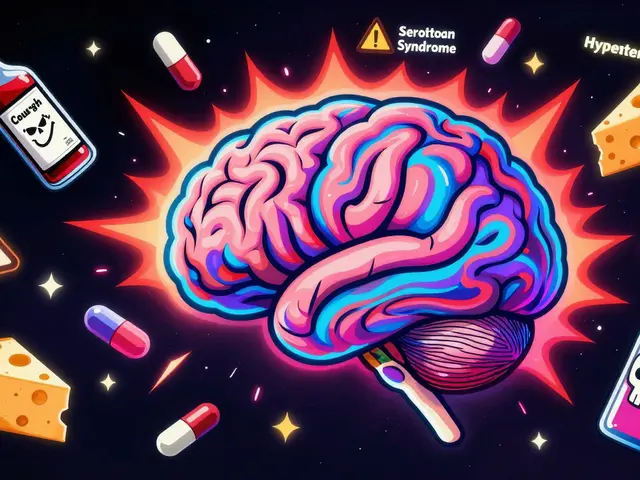Memantine: What It Does, How to Use It, and Buying Safely
If you or a loved one has moderate‑to‑severe Alzheimer’s, you’ve probably heard the name memristine. It’s not a mystery drug – it’s an NMDA receptor antagonist that helps protect brain cells from excess glutamate. In plain words, it calms down the overstimulation that can speed up memory loss.
Memantine isn’t a cure, but many people notice steadier thinking and fewer daily confusions when they add it to their treatment plan. It’s approved for Alzheimer’s, yet some doctors also prescribe it off‑label for conditions like vascular dementia or Parkinson’s‑related cognitive issues. If you’re wondering whether it fits your situation, talk with a neurologist who can weigh the benefits against any other meds you take.
How Memantine Works and Who Needs It
The drug blocks NMDA receptors just enough to stop glutamate from flooding brain cells. Too much glutamate harms neurons; memantine puts a brake on that process. The result is slower cognitive decline for many patients.
Typical candidates are adults diagnosed with moderate or severe Alzheimer’s who can still take oral tablets. It’s usually added after cholinesterase inhibitors (like donepezil) if those aren’t enough alone. If you’re early in the disease, your doctor might wait before starting memantine because the biggest gains show up later.
Dosage, Side Effects, and Things to Watch
The usual start is 5 mg once a day, increasing by 5 mg each week until you reach 20 mg daily – taken as one dose or split into two. The slow ramp‑up helps your body adjust and cuts down on stomach upset.
Common side effects include dizziness, headache, constipation, and mild confusion. A small number of people feel high blood pressure or a rapid heartbeat. If you notice severe nausea, hallucinations, or an allergic rash, call your doctor right away.
Memantine can interact with other medicines that affect the brain, like antipsychotics or certain antidepressants. Always give your pharmacist a full list of what you’re taking, especially over‑the‑counter sleep aids.
A practical tip: take memantine at the same time each day, preferably with food if it upsets your stomach. Setting a phone reminder works well and keeps doses consistent.
Buying Memantine Online – Stay Safe
Many people look for cheaper options online, but not all pharmacies are legit. First, check that the site requires a valid prescription – no pharmacy should sell memantine without one.
Look for clear contact information, a licensed pharmacist’s name, and a physical address in your country. Sites that display certifications like VIPPS (for U.S.) or Canadian Pharmacy Association seal add credibility.
Avoid offers that sound too good to be true; extremely low prices often mean counterfeit pills. Read customer reviews, but focus on recent ones that mention product quality and shipping speed.
When you place an order, use a secure payment method like credit cards or trusted payment services that offer fraud protection. Keep a copy of the prescription handy in case customs asks for it.
If anything feels off – vague return policies, no pharmacist available to answer questions, or pressure to buy quickly – walk away and try another reputable source.
Bottom line: memantine can be a helpful part of Alzheimer’s care when used correctly. Knowing the right dose, watching for side effects, and choosing a trustworthy pharmacy will give you the best chance at stable symptoms without unnecessary risk.
Memantine and Chronic Fatigue Syndrome: What We Know So Far
Alright folks, today we're diving into the thrilling world of memantine and its potential link with chronic fatigue syndrome, a wild ride indeed! Strap in, because what we've uncovered so far is as exciting as a double espresso shot on a Monday morning! So turns out, this memantine stuff, usually used for Alzheimer's, might just be the superhero for chronic fatigue syndrome we've all been waiting for. The science gang are still piecing things together, but early signs are promising. Stay tuned for future updates as we continue to unravel this mystery, one research paper at a time!






